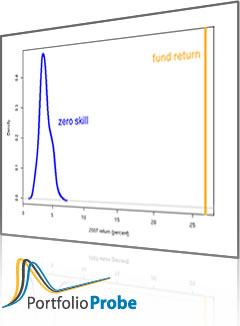Follow us using:
Newsletter Sign-up
Author Archives: Pat
High frequency trading and the volume clock
A pictorial summary of “The Volume Clock: Insights into the High Frequency Paradigm” by David Easley, Marcos M. Lopez de Prado and Maureen O’Hara. “HFT” means “high-frequency trading/trader”, “LFT” means “low-frequency trading/trader”. Legend holds that Nathan Mayer Rothschild used racing pigeons to front run his competitors and trade on the news of Napoleon’s defeat at … Continue reading
Cross sectional spread of stock returns
A look at a simplistic measure of stock-picking opportunity. Motivation The interquartile range (the spread of the middle half of the data) has recently been added to the market portrait plots. Putting those numbers into historical context was the original impulse. However, this led to thinking about change in stock-picking opportunity over time. Data Daily … Continue reading
Posted in Quant finance, R language
Tagged garch, interquartile range, S&P 500, stock-picking opportunity
Leave a comment
US market portrait 2012 week 25
US large cap market returns. Fine print The data are from Yahoo Almost all of the S&P 500 stocks are used The initial post was “Replacing market indices” The R code is in marketportrait_funs.R Subscribe to the Portfolio Probe blog by Email
Smoothing the market for alpha
How to get money to alpha, and vice versa. The problem Let’s focus on two groups: People who have money and want alpha People who have alpha and want money When there is a cross between those two groups, there is happiness. Identifying Group 1 is easy. Identifying people who want money is not difficult … Continue reading
US market portrait 2012 week 24
US large cap market returns. Fine print The data are from Yahoo Almost all of the S&P 500 stocks are used The initial post was “Replacing market indices” The R code is in marketportrait_funs.R Subscribe to the Portfolio Probe blog by Email
Variability in maximum drawdown
Maximum drawdown is blazingly variable. Psychology Probably the most salient feature that an investor notices is the amount lost since the peak: that is, the maximum drawdown. Just because drawdown is noticeable doesn’t mean it is best to notice. Statistics The paper “About the statistics of the maximum drawdown in financial time series” explores drawdown … Continue reading
US market portrait 2012 week 23
US large cap market returns. Fine print The data are from Yahoo Almost all of the S&P 500 stocks are used The initial post was “Replacing market indices” The R code is in marketportrait_funs.R Subscribe to the Portfolio Probe blog by Email
Inferno-ish R
CambR was nice enough to invite Markus Gesmann and me to speak at their event on Tuesday. My talk was Inferno-ish R. See also The R Inferno. Epilogue Subscribe to the Portfolio Probe blog by Email
Jackknifing portfolio decision returns
A look at return variability for portfolio changes. The problem Suppose we make some change to our portfolio. At a later date we can see if that change was good or bad for the portfolio return. Say, for instance, that it helped by 16 basis points. How do we properly account for variability in that … Continue reading
Posted in Performance, Quant finance, R language
Tagged jackknife, statistical bootstrap
Leave a comment
